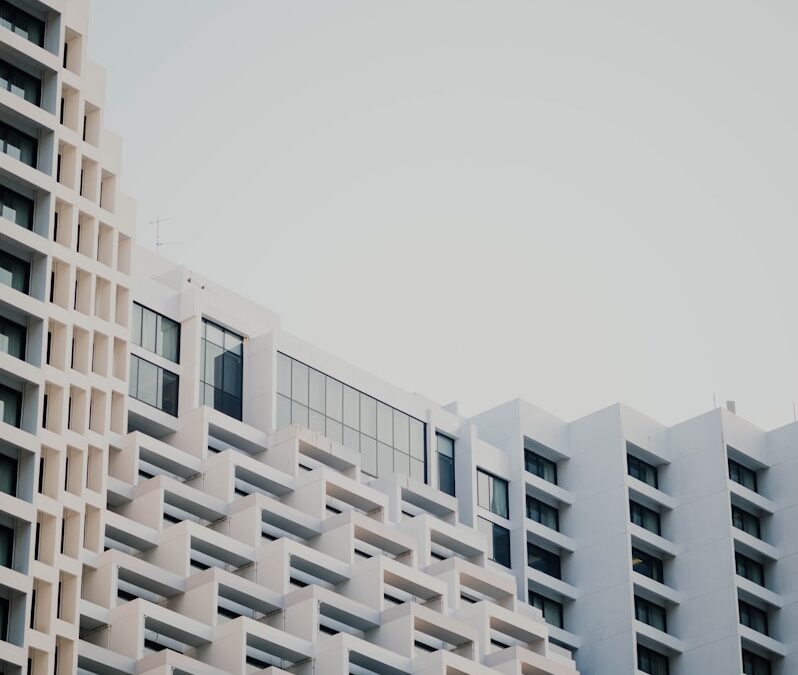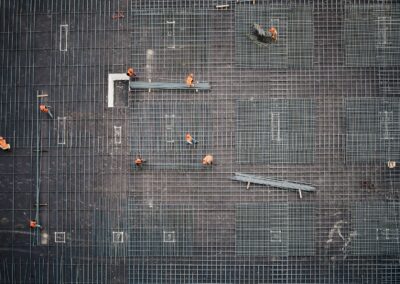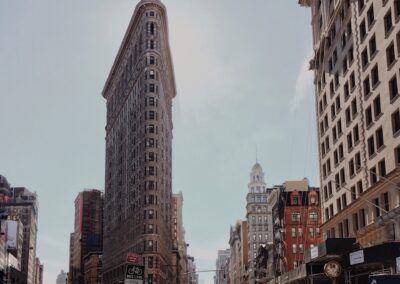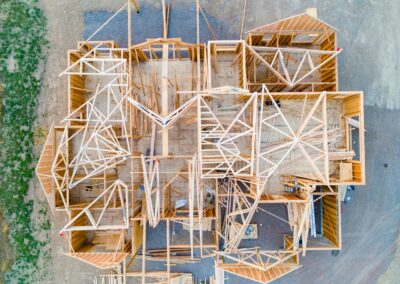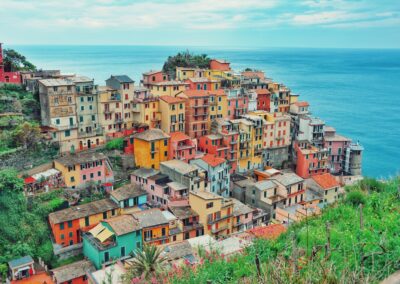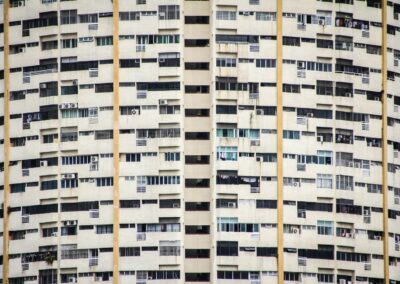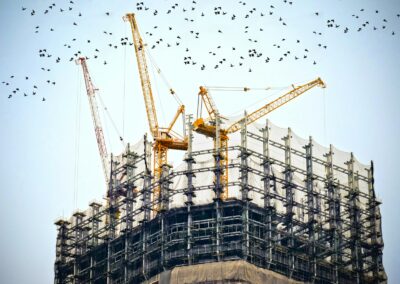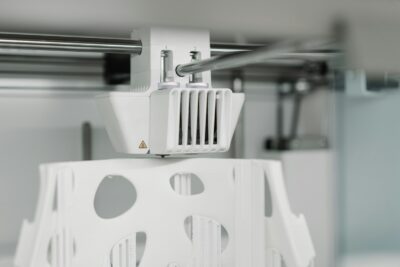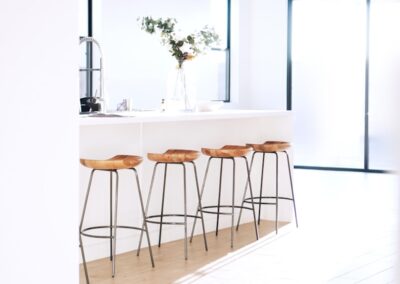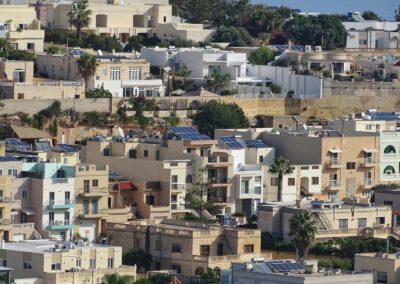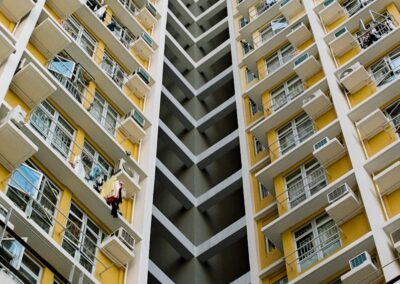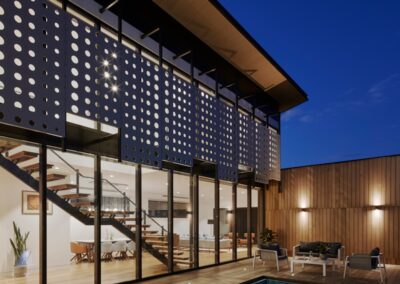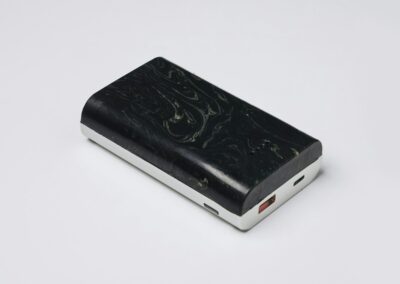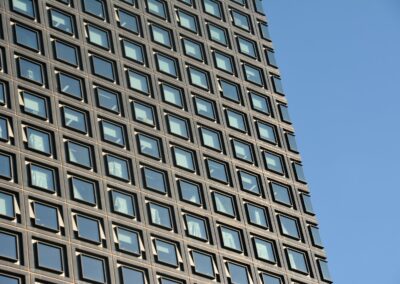Efficiency and Cost Reduction Through Prefabrication
Accelerated Building Time
In the realm of modern construction, the use of prefabricated modular units in home construction has emerged as a revolutionary approach, particularly in rapidly growing regions such as Saudi Arabia, the UAE, Riyadh, and Dubai. These modular units significantly accelerate building time compared to traditional construction methods. By manufacturing components in a controlled factory environment, construction timelines can be shortened dramatically.
One of the primary reasons for this efficiency is the simultaneous construction of building modules and site preparation. While the site is being readied, the modular units are being constructed in the factory. This parallel process reduces the overall project duration, allowing homes to be completed in a fraction of the time required for conventional builds. In regions with urgent housing needs or ambitious urban development plans, such as Riyadh and Dubai, this accelerated timeline is invaluable.
Moreover, factory production minimizes delays caused by weather conditions, which are common in traditional construction. By working in a controlled environment, construction schedules remain consistent and predictable. This reliability ensures that projects stay on track and meet deadlines, enhancing efficiency and productivity in the construction industry.
Cost Efficiency and Budget Control
Prefabricated modular units offer significant cost benefits, making them an attractive option for home construction. One of the main advantages is the ability to control and reduce costs through efficient resource use and waste minimization. In a factory setting, materials can be purchased in bulk, resulting in economies of scale that lower overall expenses.
Additionally, the precision of factory manufacturing reduces material waste, which is a common issue in traditional construction. By optimizing the use of materials and minimizing waste, builders can achieve substantial cost savings. This cost efficiency is particularly beneficial in markets like Saudi Arabia and the UAE, where large-scale housing projects and urban developments are prevalent.
The predictable nature of prefabrication also contributes to better budget management. With fewer unexpected delays and issues, construction projects are less likely to incur additional costs. This financial predictability is crucial for investors and developers, ensuring that projects remain within budget and providing a clearer return on investment. For business executives and entrepreneurs, the economic advantages of prefabricated modular units make them a compelling choice for residential and commercial projects.
Quality Control and Sustainability
Prefabricated modular units are synonymous with high quality and sustainability in home construction. The controlled factory environment allows for rigorous quality control measures, ensuring that each unit meets stringent standards before being transported to the construction site. This level of oversight results in homes that are built to last, with consistent quality across all units.
Furthermore, the use of sustainable materials and practices in modular construction aligns with global efforts to reduce the environmental impact of building activities. Factory-based construction reduces the carbon footprint associated with transporting materials to multiple sites and decreases energy consumption through efficient production processes. This focus on sustainability is particularly relevant in the UAE and Saudi Arabia, where environmental considerations are increasingly integrated into urban planning and development strategies.
In addition to material efficiency, prefabricated modular units often incorporate energy-efficient designs and technologies. Features such as superior insulation, energy-efficient windows, and smart home systems can be seamlessly integrated during the manufacturing process. These innovations contribute to lower energy consumption and reduced utility costs for homeowners, enhancing the long-term sustainability of modular homes.
Innovations and Applications of Prefabricated Modular Units
Flexibility in Design and Customization
One of the standout features of prefabricated modular units is their flexibility in design and customization. Contrary to the misconception that modular homes lack individuality, these units offer a wide range of design options that can be tailored to meet specific needs and preferences. From architectural styles to interior layouts, modular homes can be customized to reflect personal tastes and lifestyle requirements.
This design flexibility extends to the ability to easily expand or modify structures in the future. Modular homes can be designed with future growth in mind, allowing additional units to be seamlessly integrated as needs change. This adaptability is particularly advantageous in dynamic urban environments like Dubai and Riyadh, where space optimization and flexible living solutions are essential.
Moreover, advancements in modular construction technology have enabled the creation of complex and aesthetically pleasing designs that rival traditional homes. High-quality finishes, innovative architectural elements, and modern amenities can all be incorporated into modular homes, ensuring that they meet the highest standards of comfort and luxury. For business executives and entrepreneurs looking for unique and customizable housing solutions, prefabricated modular units offer an ideal blend of practicality and personalization.
Applications in Urban Development
Prefabricated modular units play a crucial role in urban development, addressing the housing needs of rapidly growing cities. In regions like Saudi Arabia and the UAE, where urbanization is progressing at a rapid pace, modular construction provides an efficient and scalable solution to meet the demand for new housing. These units can be deployed quickly to create entire communities, from residential neighborhoods to mixed-use developments.
In addition to residential applications, prefabricated modular units are increasingly used in commercial and institutional projects. Office buildings, schools, hospitals, and retail spaces can all be constructed using modular techniques, offering the same benefits of speed, cost efficiency, and quality control. This versatility makes modular construction an attractive option for various sectors, supporting the overall growth and development of urban areas.
The ability to quickly and efficiently build infrastructure is particularly valuable in cities like Riyadh and Dubai, where large-scale development projects are common. By leveraging prefabricated modular units, developers can meet tight timelines and deliver high-quality buildings that support the needs of growing urban populations. This approach not only enhances the efficiency of urban development but also contributes to the creation of vibrant and sustainable communities.
Future Trends and Innovations
The future of prefabricated modular construction is marked by continued innovation and technological advancements. Emerging trends such as 3D printing, automation, and robotics are poised to further enhance the efficiency and capabilities of modular construction. These technologies enable even greater precision and customization, pushing the boundaries of what is possible in modular home design.
3D printing, for instance, allows for the creation of complex building components with unprecedented accuracy and speed. This technology can be used to produce intricate architectural details, structural elements, and even entire building modules, revolutionizing the construction process. As 3D printing becomes more integrated into modular construction, it will open new possibilities for innovative and sustainable building designs.
Automation and robotics also play a significant role in the future of modular construction. Automated production lines and robotic assembly systems can streamline the manufacturing process, reducing labor costs and improving efficiency. These advancements enable the rapid production of high-quality building modules, supporting the growing demand for modular construction in urban development.
Conclusion
In conclusion, prefabricated modular units offer a myriad of benefits for home construction, including reduced building time, cost efficiency, high quality, and sustainability. The flexibility in design and wide range of applications make them an ideal solution for rapidly developing regions like Saudi Arabia, the UAE, Riyadh, and Dubai. As technology continues to advance, the potential for prefabricated modular construction will only grow, driving innovation and efficiency in the construction industry. Business executives, mid-level managers, and entrepreneurs must consider the advantages of modular construction as they plan and develop future urban projects, ensuring sustainable and resilient growth for their communities.
—
#prefabricatedmodularunits #homeconstruction #buildingefficiency #costreduction #moderntechnology #SaudiArabia #UAE #Riyadh #Dubai

